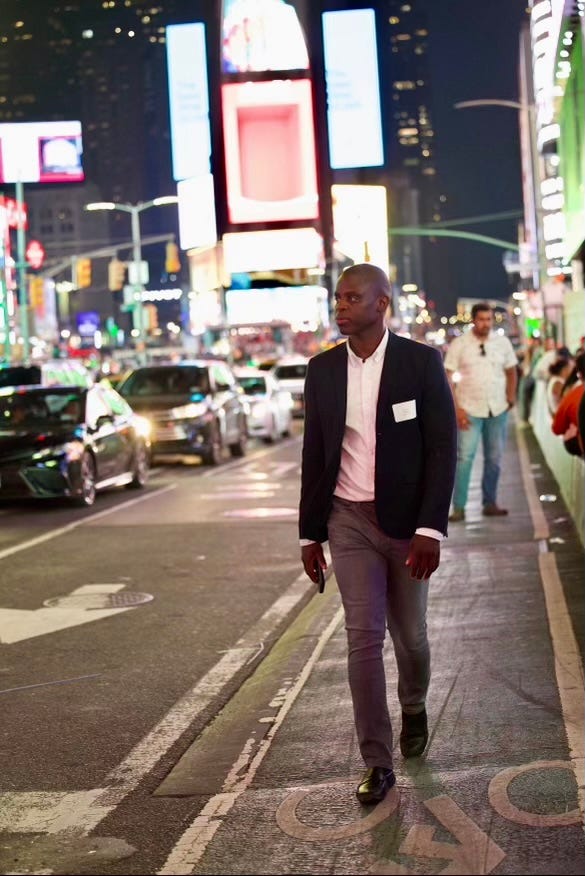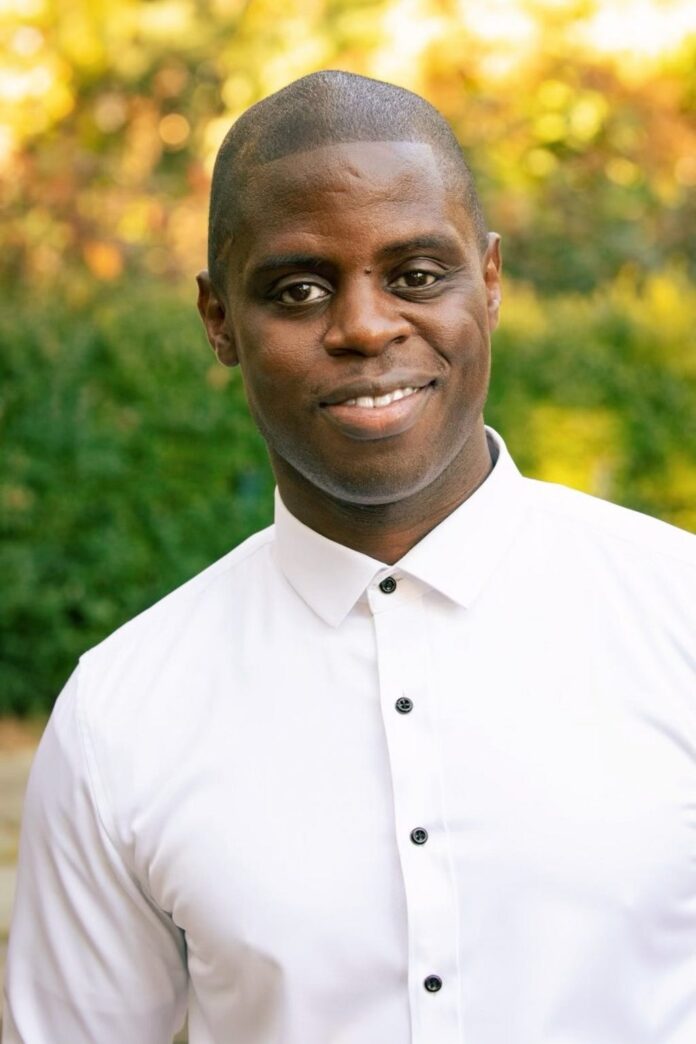An Interview With Monica Sanders
I wish someone could have explained what climate justice truly means. I had and still have a lot to learn. If only there was a universal handbook. Climate justice can mean so many different things to different people.
According to the University of Colorado, “Those who are most affected and have the fewest resources to adapt to climate change are also the least responsible for the greenhouse gas emissions — both globally and within the United States.” Promoting climate justice is an incredibly important environmental responsibility that is slowly becoming more and more recognized. In this interview series, we are talking to leaders who are helping to promote sustainability and climate justice. As part of this series, we had the pleasure of interviewing Patrick Metellus.
SCRAP was founded in 2020 by serial entrepreneur Patrick Metellus to keep clothing out of landfills (100,000 pounds and counting) by providing the best solution for repurposing unwanted textiles in a growing e-commerce fast fashion world. SCRAP’s transformative ecosystem has expanded to encompass collection, sorting, sanitizing, reselling, fiber recycling, and the creation of new products from discarded textiles. The circular economy promises to help build a positive human future by using technology to minimize resource usage and reduce waste by placing pre-loved clothing and unwanted textiles back into circulation. SCRAP’s goal is to continue to help people and brands navigate the circular textile system through its engaged ecosystem and to scale their vision to shift the industry toward a more transparent and sustainable future.
Thank you so much for doing this with us! Before we dig in, our readers would like to get to know you a bit. Can you tell us a bit about how you grew up?
I grew up in a very large suburban New York first generation American household. I grew up in 1980’s New York which for me felt like the center of the universe. Run DMC, Ronald Reagan, Hulk Hogan, Rocky. Going to flea markets, Army Navy stores in the old Times Square. Walkmans, MTV and Video Music Box. As a teen, I always found work as a busboy in restaurants, earning my first paycheck of $101.00 at the age of 16.
Everyone has a cataclysmic moment or marker in their life which propels them to take certain actions, a “why”. What is your why?
The why in my life starts with my mother Claudette Calypso, she is literally the reason why I started SCRAP NYC. As a first generation American my mother worked as hard as she could to provide for me and my siblings. My mother would give the shirt off her back to someone who was in need. My mother set an example for me to help those that are less fortunate and in need. My mother collected used clothing and shipped it to her home country of Haiti for distribution to local churches and charities. A lot of that clothing often included clothing from our own household.
You are currently leading an organization that is making a difference for our planet. Can you tell us a bit about what you and your organization are trying to change?
What we are trying to do is change the way consumers, brands, manufacturers and retailers think about the role each plays in the ever changing ecosystem of textile manufacturing, consumption and eventual disposal. We are trying to get all of the key stakeholders to view the textile lifecycle as circular and not linear.
Can you share the most interesting story that happened to you since you began leading your company or organization?
There are so many stories to tell and hard to focus on one but in general, I love hearing how excited people are about having SCRAP NYC show up to their homes for a clothing pickup. An old college roommate scheduled a pickup that I personally did and they were extremely excited about seeing me and also about the service SCRAP and I provided.
None of us can be successful without some help along the way. Did you have mentors or cheerleaders who helped you to succeed? Can you tell us a story about their influence?
My parents were the biggest influencers in my life from my mothers infinity for helping others to my father always stressing the need to always work hard and be the best at what you do. My father once told me that he would be ok with me growing up to be a dishwasher as long as I was the best dishwasher anyone could find. From a professional standpoint the person that comes to mind is Charles Gaenslrn CEO of Loftex USA. Loftex is a leading manufacturer of towels and Charles has been very helpful with providing advice and feedback. We have a lot of admiration for Charles and the direction he is taking Loftex USA. Charles always finds a way to put SCRAP to the forefront of any conversations we are having with potential collaborators.
Thank you for that. Let’s now move to the central part of our discussion. Let’s start with a basic definition of terms so that everyone is on the same page. What does climate justice mean to you? How do we operationalize it?
I have to be very honest and say I probably could not give a definition of climate justice because it is something that is very new to me. I am in a position as a founder of a sustainability focused company however I see myself as a student of the sustainability ecosystem and eager to continue learning.
Science is telling us that we have 7–10 years to make critical decisions about climate change. What are three things you or your organization are doing to help?
1.Collection, 2. Collaboration 3. Innovation.
SCRAP has collected and diverted 100’s of thousands of clothing textiles from landfills. We have found willing partners in the textile recycling ecosystem to develop truly circular systems that we are looking to collaboratively scale. We are not only collecting, we are also working with brands, retailers and manufactures on developing products such as towels made with recycled material manufactured from textiles we have collected.
Are there three things the community, society, or politicians can do to help you in your mission?
They all play a crucial role in our company mission to promote sustainability.
Investment in collection, warehousing and sorting business infrastructure by brands, retailers and government would allow SCRAP to collect more textiles that would otherwise end up in landfill. Collecting more would allow us to do more and have a greater impact.
Implementation of policies and regulations to hold brands and to a lesser extent consumers accountable once a product reaches its end of life. Laws could make it mandatory for consumers and retailers to both participate in fueling a truly circular textile economy. These policies should also include incentives such as tax deductions for consumers and businesses who responsibly dispose of textile. This would almost certainly encourage more sustainable practices by consumers and businesses.
How would you articulate how a business can become more profitable by being more sustainable and more environmentally conscious? Can you share a story or example?
We collect and recycle towels from the hotel and hospitality industry. We are collaborating with a towel manufacturer to design and manufacture new towels. The hotel believes they have a competitive advantage to hotel chains that do not currently have recycling programs. This competitive advantage can potentially lead to a booking advantage that is reflected in their bookings dept.

What are your “5 things I wish someone told me when I first started promoting sustainability and climate justice” and why?
1. I wish someone could have explained what climate justice truly means. I had and still have a lot to learn. If only there was a universal handbook. Climate justice can mean so many different things to different people.
2 . How reluctant local government seems to be in making textile recycling a priority as far as legislation is concerned.
3 . The need for education and awareness.
4 . The importance of advocacy and policy change.
5 . The Importance of self care.
Is there a person in the world, or in the US with whom you would like to have a private breakfast or lunch with, and why? He or she might just see this, especially if we tag them. 🙂
I would welcome a private lunch with the CEO of any fortune 500 company. As a CEO myself, I would love to hear the story of their journey.
How can our readers continue to follow your work online?
SCRAP NYC (LinkedIn & Instagram)
Website: www.scrapnyc.com
This was very meaningful, thank you so much. We wish you only continued success on your great work!
About the Interviewer: Monica Sanders JD, LL.M, is the founder of “The Undivide Project”, an organization dedicated to creating climate resilience in underserved communities using good tech and the power of the Internet. She holds faculty roles at the Georgetown University Law Center and the Tulane University Disaster Resilience Leadership Academy. Professor Sanders also serves on several UN agency working groups. As an attorney, Monica has held senior roles in all three branches of government, private industry, and nonprofits. In her previous life, she was a journalist for seven years and the recipient of several awards, including an Emmy. Now the New Orleans native spends her time in solidarity with and championing change for those on the frontlines of climate change and digital divestment. Learn more about how to join her at: www.theundivideproject.org.
How Patrick Metellus Is Helping to Promote Sustainability and Climate Justice was originally published in Authority Magazine on Medium, where people are continuing the conversation by highlighting and responding to this story.


